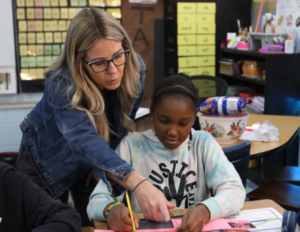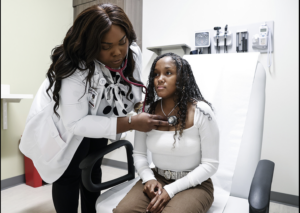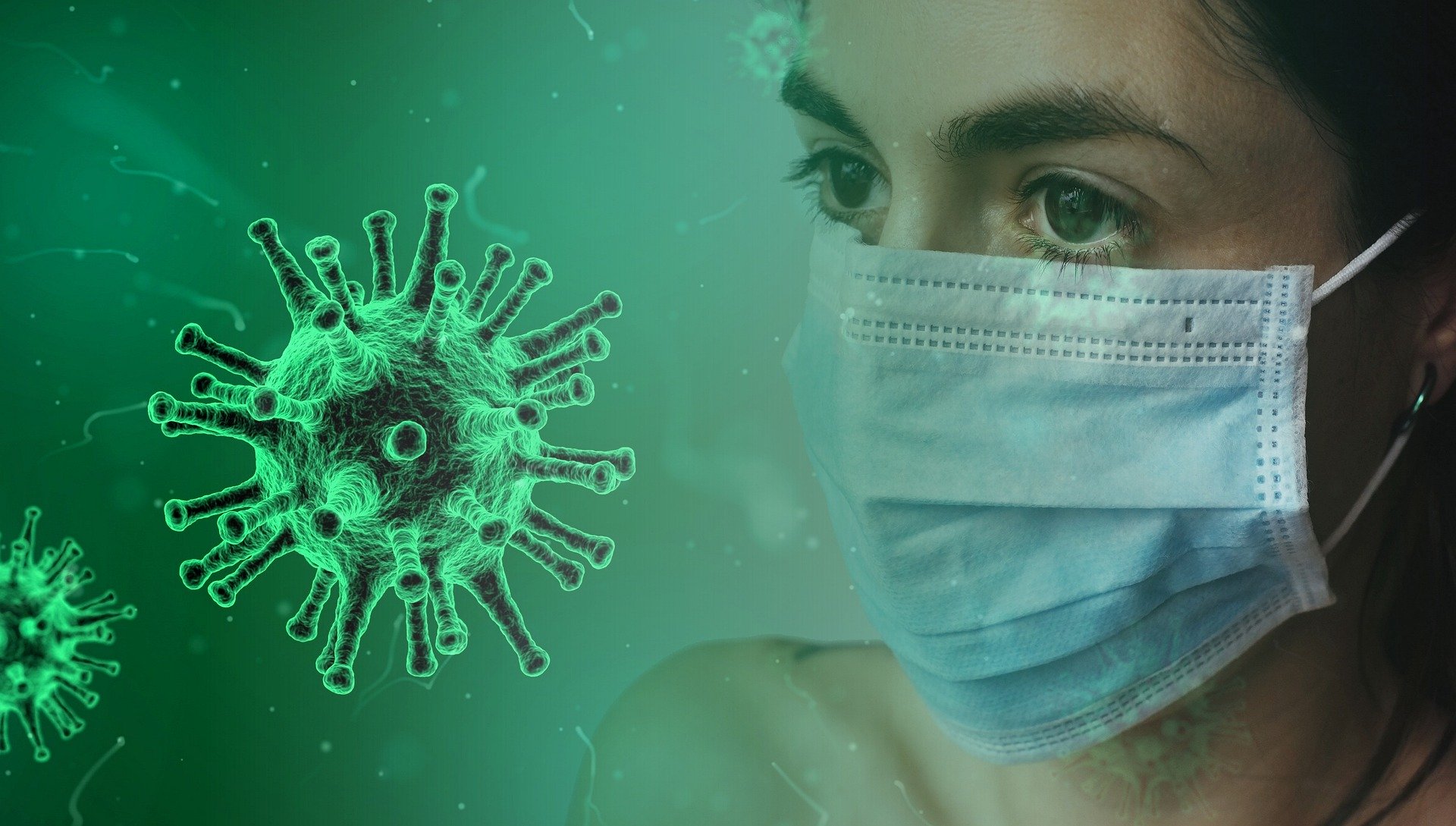
An ongoing list of COVID-19 mental health resources for journalists and you
UPDATED June 10, 2020
ATLANTA — Carter Center mental health journalism fellows have been reporting on the mental health impact of COVID-19. You’ll find here their reporting, mental health resources for journalists covering the pandemic and for the general public impacted by the virus.
We are continuing to update this list regularly. Have a resource you’d like to share? Tweet us @CarterFellows.
Tap below to view the full Twitter thread on @CarterFellows:
.@CarterFellows have been reporting on the mental health impact of #COVID19.
We'd like to share some resources with you, starting with @CDCgov's tips for coping: https://t.co/CMmh706Jyx (Thread)
— Carter Fellows (@CarterFellows) March 12, 2020
Resources for Everyone
Mental Health and COVID-19 Resources from The Carter Center. To aid people and communities during the pandemic, the Carter Center’s Mental Health Program has compiled global, national, and local resources for mental health and wellness.
Tips from the Center for Disease Control and Prevention on managing anxiety and stress around COVID-19. It includes how to reduce stress in yourself and others as well as advice specific to parents, first responders, and people who have been released from quarantine.
My Therapy Cards. Ebony Butler, Ph.D. is a Licensed Psychologist and Food Relationship Strategist who is also the creator of My Therapy Cards – the first card deck and self-help tool focused on making mental health and emotional exploration more accessible and less stigmatized for women of color.
‘Stay home, Stay MIndful’ is an initiative between Headspace and Michigan that offers a collection of meditation, sleep, and movement exercises to help you keep a strong and healthy mind in the midst of this global health crisis.
Free virtual therapy for underserved communities. Actress and mental health advocate Taraji P Henson’s Boris Lawrence Henson Foundation launched a COVID-19 virtual therapy initiative to serve communities of color through the coronavirus crisis. Register here for “up to 5 free therapy sessions with culturally competent clinicians.”
60 digital resources for mental health from Social Work License Map. You can jump to a specific population (lesbian, gay, bisexual and transgender; military/veterans; minorities etc.) or view by mental health disorder.
How is COVID-19 impacting black communities’ mental health and what can we do? How do you deal with stress during the pandemic? What are some tips for coping? The Carter Center’s Mental Health Program has teamed up with Atanta’s WSB-TV. Tune in for weekly segments on pandemic mental health.
School mental health resources for responding to COVID-19 from the Mental Health Technology Transfer Center Network, which is a network of organizations that disseminates and implements evidence-based practices for mental disorders. It includes webinars like School Mental Health Wednesdays, educator wellness, planning during crises, and other resources from reputable organizations.
Free text service sends daily support to isolated trans people. The Validation Station is the new free text service created for the lockdown, from non-binary radio presenter Jacob Edward, queer, trans woman Kes and Grace Hayhurst with support by cloud communications company Vonage.
How to talk to kids about the coronavirus. The Poynter Institute’s senior faculty member Al Tompkins summarizes advice from the Child Mind Institute and draws from other helpful articles.
7 ways to keep your anxious kid calm during COVID-19. Writer Tara Mandarano shares some ways she’s distracting her daughter from her worries. (Tip: They also work for adults.)
How to care for your kids’ mental health during the COVID-19 pandemic. HuffPo’s Caroline Bologna shares ways parents can help their kids cope with social distancing.
Protecting your mental health during the coronavirus outbreak from the American Foundation for Suicide Prevention. Doreen Marshall, Ph.D. shares five simple things you can do to take care of your mental health. There’s also an option to share your own story and ideas on their Sharing Your Story page.
Mental health and COVID-19: Information and resources. This incredibly comprehensive list of resources from Mental Health America provides guidance in numerous areas, including financial support, tools and information on anxiety, tools to connect with others, resources for immediate response, webinars, live events and workshops, for mental health providers, parents, caregivers, older adults, domestic violence survivors, the LGBTQ community, veterans, how-to articles, and general information about COVID-19.
Looking after your mental health during the coronavirus outbreak, from the Mental Health Foundation in the U.K.
Care for your coronavirus anxiety, a toolkit with resources for anxiety and your mental health in a global climate of anxiety from self-care community, Shine. It includes an ask an expert option, free meditations, a section for parents, random internet things to help you recenter, and addresses specific concerns like financial worry, xenophobia, and isolation.
Coronavirus: Apps to help with self-management. This list of 16 apps from U.K.-based Orcha, a health app evaluation and advisor organisation, helps people at home manage self-care and anxiety, respiratory and heart condition symptoms, diabetes etc.
Taking care of your behavioral health (pdf). This tip sheet from the Substance Abuse and Mental Health Services Administration describes feelings and thoughts you may have during and after social distancing, quarantine and isolation. It also suggests ways to care for your mental health.
HearMe app. HearMe is a peer emotional support app that can help users cope with anxiety. It allows users to text with volunteers who’ve had specialized training on effective strategies used in counseling, doctor-patient relationships and crisis interventions.
Coronavirus: Resources for anxiety, stress and wellbeing. The Australia-based Black Dog Institute provides evidence-based articles, digital tools, and resources for people feeling anxious, schools and young people, people managing their mental health at home, health professionals, and other evidence and policy.
Resources for Journalists
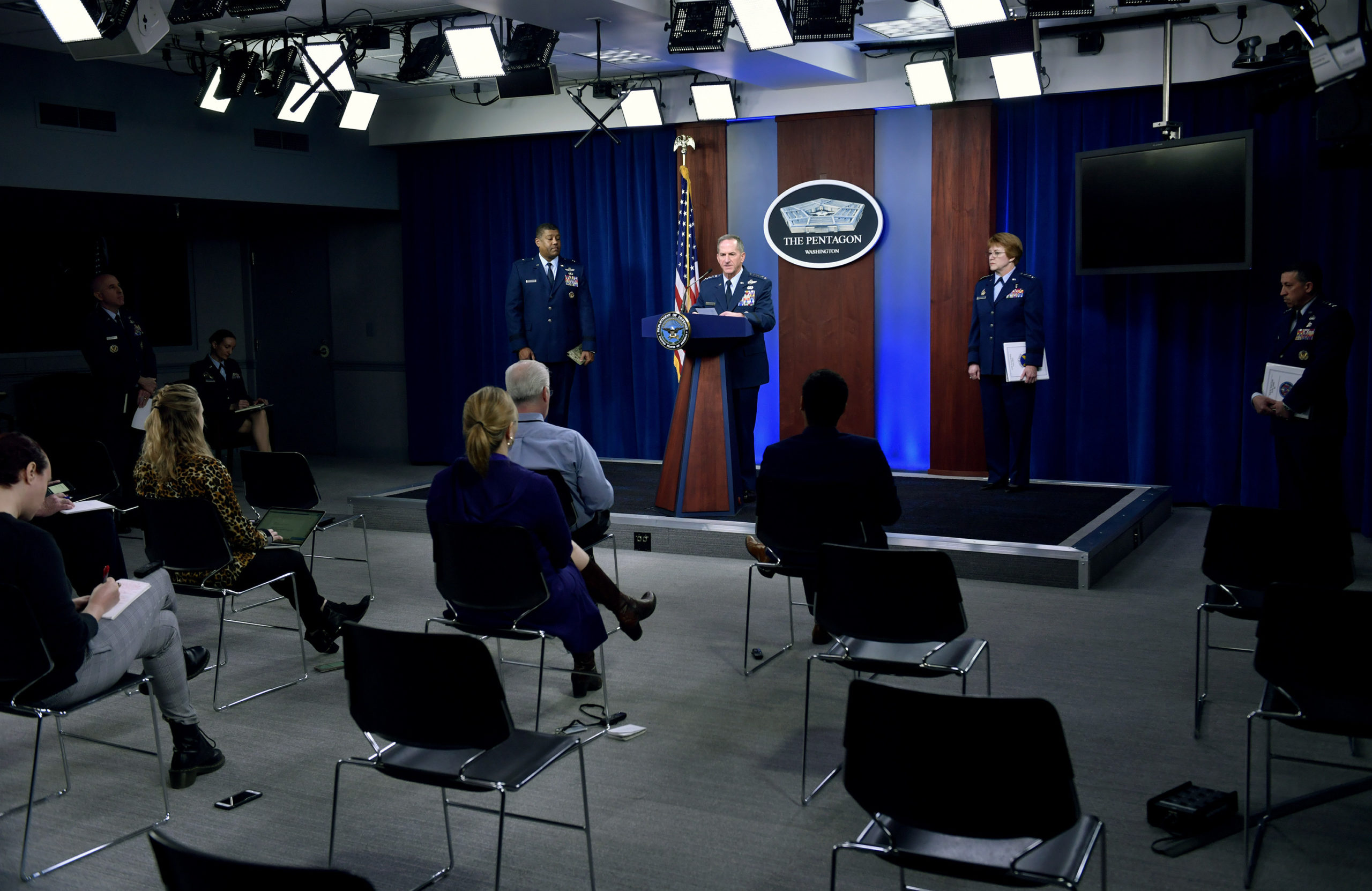
Air Force Chief of Staff Gen. David L. Goldfein conducts a press briefing with the Pentagon Press Corps to address Air Force response efforts for COVID-19 at the Pentagon, Arlington, Va., March 18, 2020. (U.S. Air Force photo by Wayne Clark)
Preventing a Media Mental Health Crisis. As the COVID-19 pandemic intensifies pressure on newsrooms and upends decades-old journalistic practices, the risks to journalist’s mental health are mounting. From Ethical Journalism Network Director Hannah Storm: tips about managing individual responses to the crisis and news management validating their team’s vital work.
How COVID-19 could affect mental health and suicide. In a session with the National Press Foundation, three mental health experts discuss the conditions that could lead to more suicides, recommendations for prevention and answered questions from reporters on how to cover the topic responsibly.
Reporting on coronavirus: Handling sensitive remote interviews. Working with people who are grieving requires sensitivity, but there are added considerations when interviewing people remotely who have been bereaved through coronavirus. BBC News reporter Jo Healey shares tips with The Dart Center for Journalism & Trauma.
Reporting and COVID-19: Tips for journalists. The Dart Center for Journalism & Trauma provides tips and tools to report safely and effectively during the coronavirus pandemic, updated regularly after Dart Center webinars.
Confronting the emotional toll of covering COVID-19 from The GroundTruth Project. Cynthya Gluck, a College for Social Innovation Fellow at GroundTruth, talks to Mike Niconchuk, director of research and development at Beyond Conflict, about specific things journalists can do to ground themselves and manage the anxiety.
JAWS self-care resource guide for journalists during COVID-19. Marissa Evans, social issues reporter at The Star Tribune and a 2016-2017 Carter Center Mental Health Journalism Fellow, includes resources on ways to balance job demands with the uncertainty of a pandemic, working from home, mental health resources, managing children, relaxing your mind and body, and financial assistance.
How journalists can fight stress from covering the coronavirus. The Poynter Institute’s senior faculty member Al Tompkins and his wife Sidney Tompkins, a licensed psychotherapist, offer 9 ways journalists can push back against the stress of an always-on story. It includes a helpful video on managing newsroom stress and trauma.
Critical stress safety help sheet (pdf). This downloadable tip sheet from the National Press Photographers’ Association offers guidance on covering critical stress incidents like COVID-19 and protecting yourself and your news crews, so they can effectively cover it, i.e. what to do immediately after a critical stress incident, how to handle the days after, and commonly reported reactions.
Covering coronavirus: Resources for journalists. The Dart Center has compiled English and Chinese-language resources for journalists covering COVID-19, including tips on interviewing victims and survivors, and working with colleagues exposed to traumatic events.
Media ethics, safety and mental health: Reporting in the time of COVID-19. Ethical Journalism Network Director Hannah Storm offers tips on responsible and ethical journalism while reporting on the pandemic, staying physically safe, and how to manage your mental health while covering the coronavirus.
The newsroom guide to COVID-19. Journalists in the Journalists of Color Slack channel, the News Nerdery community and OpenNews worked together on this guide, which covers general information about the coronavirus and what to do if exposed; how to care for your physical and emotional health as you cover the pandemic; caring for others (colleagues, reporters, or freelancers); and tips for event planners.
How journalists can deal with trauma while reporting on COVID-19. This guidance from the Global Investigative Journalism Network looks at before, during and after.
The psychological toll of coronavirus coverage. Columbia Journalism Review Delacorte Fellow Lauren Harris encourages newsrooms to slow down, ask themselves what matters most, and be a calm guide for readers. It includes a compilation of important coronavirus reporting.
Mental health tips and resources for journalists. Review a recap of tips or view this International Journalists’ Network webinar with panelists Bruce Shapiro, executive director of the Dart Center for Journalism and Trauma at Columbia University and Sherry Ricchiardi, Ph.D., co-author of ICFJ’s Disaster and Crisis Coverage guide, moderated by IJNet Editor, Taylor Mulcahey.
How journalists can take care of themselves while covering trauma. Kari Cobham, senior associate director of the Carter Center’s mental health journalism fellowships and media, provides a guide to self-care on Poynter.org.
The National Association of Hispanic Journalists is hosting weekly webinars on mental health in both English and Spanish.
The NAHJ/@VitaActivaOrg Mental Health Taskforce will facilitate one-hour webinars in Spanish & English to build a resilient community of journalists
Speakers: @Luortiz & César Montesano
Tuesdays: 8PM EST in English
Thursdays: 8PM EST en EspañolZoom link https://t.co/hGXq78qYSZ pic.twitter.com/8MLw25jUSk
— NAHJ (@NAHJ) March 20, 2020
National Geographic Society COVID-19 Emergency Fund for Journalists. We’re including this resource because so many journalists are experiencing lay-offs or furloughs and financial instability contributes to anxiety and other issues. This fund is for journalists who wish to cover COVID-19 within their own communities, with an emphasis on delivering news to under-served populations. Support ranges from $1,000–8,000 USD for local coverage of preparation, response, and impact of the pandemic through evidence-based reporting.
The Kennedy Forum Illinois is offering a free 60-minute webinar for businesses and organizations on how to manage stress and reduce isolation. Contact director of programs James Burns @ james(at)thekennedyforum(dot)org to schedule a training.
Carter Fellows’ COVID-19 Mental Health Reporting
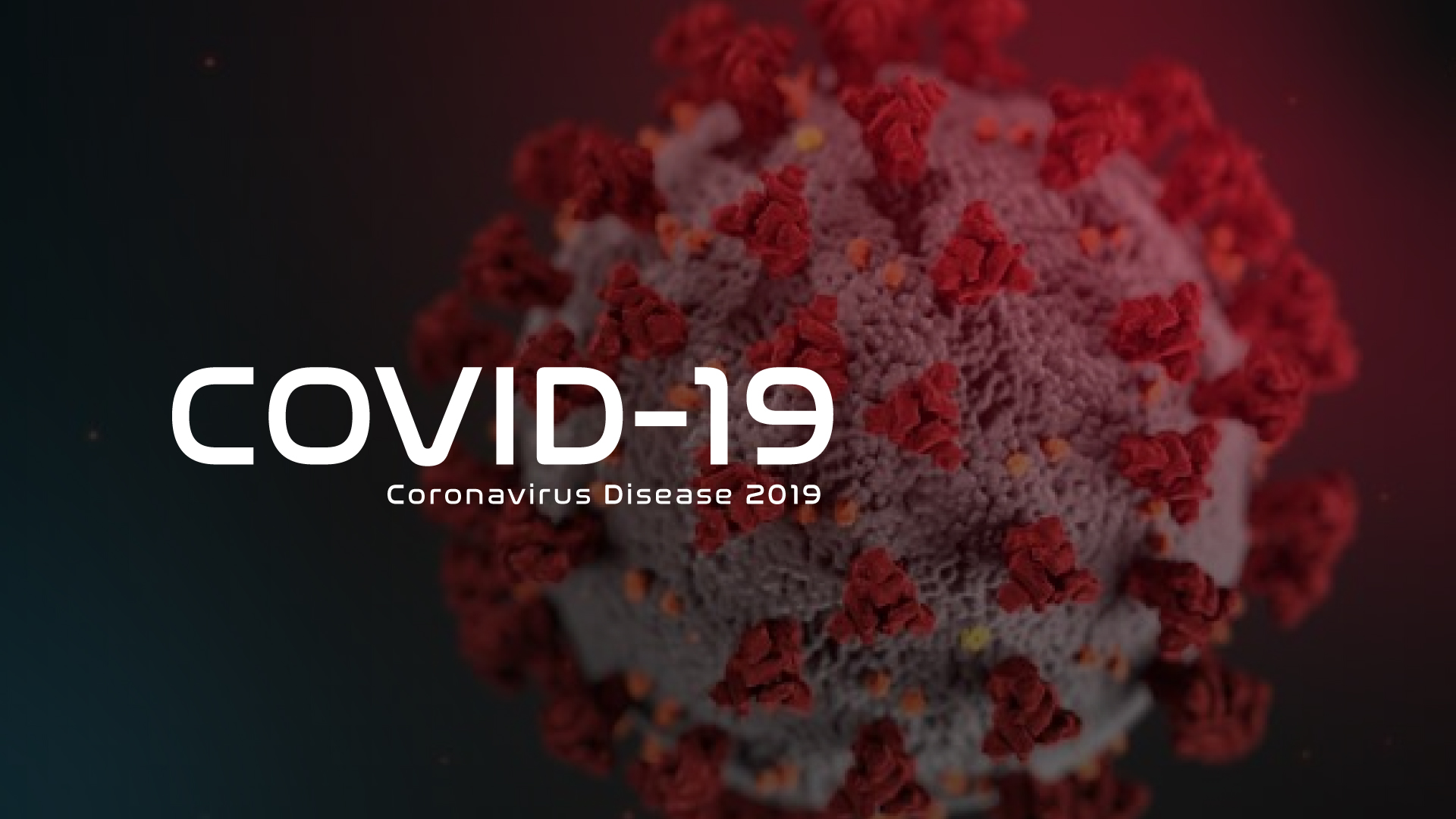
Coronavirus Disease 2019 Rotator Graphic for af.mil. (U.S. Air Force Graphic by Rosario “Charo” Gutierrez)
Who will heal the healers? Hospitals are working hard to keep healthcare workers physically safe. But what about their psychological health? A story from Deborah Wang (’18-’19) for KUOW Public Radio in Seattle, with links to mental health and wellness resources for healthcare providers. More on KUOW’s Seattle Now podcast, too.
Honor Your Pace In Life (Regardless Of Whether There’s A Pandemic Or Not). Amna Al Haddad (’16-’17) writes for Entrepreneur.com Middle East that finding solutions amidst a crisis is a valuable skill and something to be respected.
Fostering pets is helping some better cope with the pandemic. This 6-minute documentary from Melanie Saltzman (’19-’20) and Laura Fong for PBS NewsHour Weekend looks at how New Yorkers responded to animal shelters’ pleas to home pets amid the COVID-19 crisis. Turns out, fostering animals has emotional and physical benefits for the humans taking care of them, especially during self-isolation.
Quarantine got your mind? Here’s how to take it back. Stephanie Foo (’19-’20) looks at your brain in survival mode, tips for grounding yourself, finding self control and long-term healing.
What schools should be doing for students and parents. The National’s Assistant Editor-in-Chief Nick March, who runs the fellowships in the United Arab Emirates, calls for stakeholders and institutions to innovate and respond to student needs.
The plight of a hospital chaplain during the coronavirus pandemic. How do you comfort the suffering when you’re not allowed in the room? Elizabeth Barber (’19-’20) writes for the New Yorker.
Is your family’s mental health taking a hit from COVID-19? Take this class. Deborah Wang (’18-’19) reports for KUOW Public Radio in Seattle.
How to manage your coronavirus anxiety: The novel coronavirus is making everyone anxious. But there are ways to cope. Here’s how. Andrea Petersen (’07-’08) offers tips in the Wall Street Journal.
The facts on coronavirus aren’t all scary. So why so much fear? Alia Dastagir (’19-’20) explores for USA Today why we feel the way we feel about the pandemic.
Coronavirus reveals everything that’s wrong with our mental health care system. Rebecca Ruiz (’11-’12) talks to leading mental health organizations about how a broken system often leaves people one emergency away from a mental health care crisis.
Social distancing can’t mean being disconnected. Katie Hawkins-Gaar is a member of the Carter Center’s Journalism Fellowship Advisory Board. She writes for CNN on safe ways that we can—and should—connect with our neighbors, friends and loved ones during this time.
An unexpected side effect of the coronavirus? A new urgency about helping people experiencing homelessness. Thomas Curwen (’02-’03) reminds us in the Los Angeles Times that while the world is facing an unprecedented health crisis, there are reasons to be optimistic.
Rumors fly in Kensington about coronavirus ‘immunity’ and early jail releases. Courtenay Harris Bond (’17-’18) reports for Billy Penn on how COVID-19 is impacting people experiencing homelessness in Philadelphia.
‘Isolation is a big trigger’: Feelings of suicide are amplified amid a pandemic. Alia Dastagir (’19-’20) explores for USA Today the ripple effects and how to take care of others.
Domestic violence in the age of coronavirus: What happens when you’re stuck at home, but home isn’t safe? Alia Dastagir (’19-’20) provides for USA Today an overview of the issue, how victims can respond, and resources on where to get help.
The coronavirus has robbed us all. If you feel you’ve been robbed, you’re not alone. The pandemic has taken a lot, and not just in terms of health or loved ones. Alia Dastagir (’19-’20) reports for USA Today.
We all want to know how the coronavirus ends. How do we cope with uncertainty? Alia Dastagir (’19-’20) shares advice from the experts on coping in USA Today.
She woke up to her chest burning. It wasn’t coronavirus. It was anxiety. Sarah Smith (’18-’19) reports for Houston Chronicle.
Keeping calm in Guilderland, New York, in the time of the coronavirus. Elizabeth Barber (’19-’20) with the New Yorker spends time with her father, supervisor of the town of Guilderland, as he mitigates the anxieties of thirty-six thousand people under his watch as more coronavirus cases are diagnosed.
‘We can’t go back to normal’: How will coronavirus change the world? Times of upheaval are times of radical change. Some believe the pandemic is a once-in-a-generation chance to build a better future. Others, that it’ll make injustices worse. Peter C. Baker (’17-’18) reports for The Guardian.
L.A. suicide hotline seeing rise in coronavirus-related calls. Counselors feel the pain. For L.A. Times, Brittny Mejia (’19-’20) talks to counselors on the front line and they share why they keep at it.
Psychologists offer tips for staying mentally well during the coronavirus pandemic. Nick Webster (’19-’20) talks to mental health experts in the United Arab Emirates for The National newspaper about stemming stress during the pandemic.
Restrictions lifted on Dubai clinics offering remote mental healthcare. Nick Webster (’19-’20) covers this important development for The National newspaper.
Live sessions to help UAE residents manage mental health during social isolation. Nick Webster (’19-’20) writes about daily sessions with mental health experts being broadcast via the UAE’s National Programme for Happiness and Well-being’s social media channels.
This image Twitter thread from Stephanie Foo (’19-’20):
Here's a little image thread for those struggling right now, feeling like they're not coping well or are going crazy. You're not. Your brain is trying to protect you. Here's how to work with your brain, not against it. #MentalHealthMatters #COVID19 pic.twitter.com/Unxe81LjeU
— Stephanie Foo, author of WHAT MY BONES KNOW (@stephaniefoooo) March 31, 2020
Other COVID-19 Mental Health Reporting

Pennsylvania Commonwealth microbiologist Kerry Pollard performs a manual extraction of the coronavirus inside the extraction lab at the Pennsylvania Department of Health Bureau of Laboratories on Friday, March 6, 2020. Image/Flickr
How coronavirus is affecting the Latinx community’s mental health. The COVID-19 crisis has heightened the stress on Latinxs and highlighted the widespread lack of mental health care. Kiara Alfonseca reports for HuffPost.
We are doctors who study trauma. Here’s how to cope with the COVID-19 crisis. In HuffPost, two doctor’s share science-based coping strategies.
Coronavirus anxiety is seriously affecting teens. Here’s how to help. In HuffPost, teenagers’ worlds have been rocked by COVID-19, and they’re being left out of conversations about mental health and stress.
6 mental health tips for parents during the coronavirus outbreak, from Amy Cirbus Ph.D, LMHC, LPC for Talkspace.
Coronavirus is causing a mental health crisis. Here’s how to fight it. In Vox, Covid-19 patients and those caring for them could be especially at risk for anxiety, depression, and other conditions.
Taraji P. Henson’s foundation offers free virtual therapy for underserved communities. In Colorlines, the Boris Lawrence Henson Foundation, a non-profit combating mental health issues in the Black community, wants to reach those struggling with life changes triggered by the COVID-19 pandemic.
Mental illness will be ‘next wave’ of COVID-19 pandemic, epidemiologist says. Months-long isolation will take its toll on people’s mental health. CBC News’s Eva Uguen-Csenge explores.
How to sleep better if coronavirus anxiety is keeping you awake. Experiencing insomnia during the pandemic? Stress dreams? This expert advice is for you, from Jillian Wilson in HuffPo.
How to tell if you have coronavirus or if you’re experiencing anxiety. HuffPost freelancer Stephanie Barnes explores the symptoms of both, how to handle anxiety and preventative measures worth taking.
Failure to address coronavirus mental health issues will prolong impact. For The Hill, Opinion contributors former U.S. Surgeon General Dr. David Satcher, Kennedy Forum founder Patrick J. Kennedy, and American Psychological Association CEO Arthur C. Evans Jr., Ph.D., write about what the federal government and state and local leaders can prioritize in their coordinated responses to ensure the health and well-being of Americans long after headlines about coronavirus have dissipated.
Mental health professionals are preparing for an epidemic of anxiety around the coronavirus. In Mother Jones, Ben Bagdikian editorial fellow Will Peischel talks to mental health experts about common symptoms and how they’re addressing patient concerns.
Pandemic anxiety is making us sleepless, forgetful and angry. Here are tips for coping. In Washington Post, psychologist offers key tips for coping.
Governments are still struggling to get ahead of the coronavirus. From The Economist: Of the 5 stages of grief, humanity’s response to COVID-19 seemed stuck in the first 3: denial, anger and bargaining. March 16 may have been the day we moved onto the next stage: depression.
Social distancing could affect your mental health, experts say. In this article from Cox Media Group, experts say to remember the three R’s: Recognize, respond and ritualize.
Caring for your mental health in the time of coronavirus (Spanish). In El Especatador, journalist Daniela Quintero Díaz offers tips from a Colombian perspective.
Applications for the Rosalynn Carter Fellowships for Mental Health Journalism are now open to journalists until April 29, 2020. U.S. journalists can CLICK HERE TO APPLY.
Journalists in the United Arab Emirates can apply for fellowships through The National here. Journalists in Latin America can apply through Universidad de la Sabana and the GABO Foundation here.


